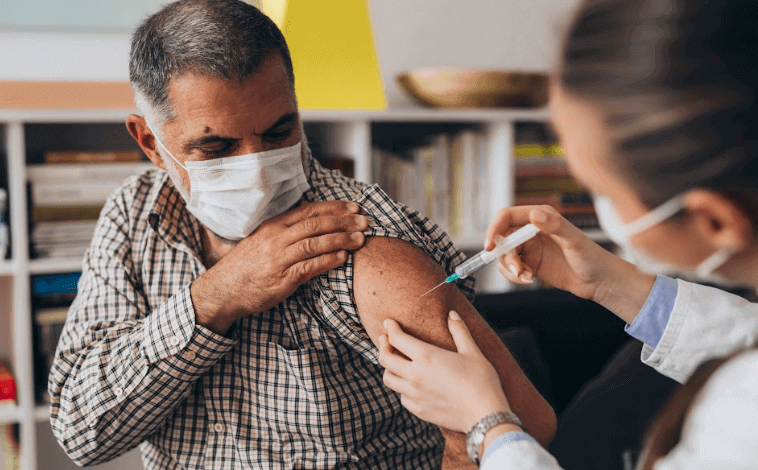The Risks And Benefits Of Vaccines

For hundreds of years, humans have searched for ways to keep each other protected against life-threatening diseases. From risky experiments to a worldwide vaccine implementation in the middle of an unexpected pandemic, vaccination has a long history.
The first successful vaccine was created in May 1796 by a doctor named Edward Jenner. They discovered that individuals infected by cowpox are immune to smallpox. Working on this information, the scientist worked on inoculation experiments that yielded outstanding results.
The discovery made by Jenner gave rise to the term ‘vaccine,’ which came from the Latin word ‘vacca,’ meaning cow. After all, there’s nothing more suitable than the material that saved them from imminent death. But are vaccines safe?
Generally, vaccines are safe for humans; nevertheless, they carry potential risks, as with any medicine aside from the protection they provide. In this post, you’ll learn the possible risks and benefits of vaccines to your body. Read on to learn more.
What Are The Risk Of Vaccines?
Vaccines may cause shoulder injuries if they’re not properly administered. This is called shoulder injury related to vaccine administration or SIRVA.
SIRVA refers to the injury of the upper shoulder or arm caused by improper vaccine administration. It occurs when the needle penetrates through the bursa within the deltoid muscle, causing unusual pain.
Symptoms of SIRVA include the following:
- Sudden dull to intense pain in the upper shoulder;
- Limited range of motion;
- Having difficulties moving the affected arm;
- Pain that may start within 48 hours after vaccination; and the like.
If symptoms persist for several days after receiving the vaccine, it may be SIRVA. Call your doctor immediately and have it treated as soon as possible. Keep in mind SIRVA may result in permanent shoulder dysfunction if left untreated.
But can you prevent SIRVA? Yes, you can! Since the injury results from malpractice, the only way to avoid it is to ensure that the person administering the vaccine is well-trained.
Aside from SIRVA, here are other risks of vaccines depending on the type of vaccine administered.
- DTaP Vaccine (Diphtheria, Tetanus, And Pertussis)
DTaP vaccines may cause swelling or soreness, fever, fatigue, changes in appetite, fussiness, and vomiting. More complicated side effects include seizures, high fever (105F and above), and non-stop crying (for children).
- Hepatitis A And B Vaccine
Hepatitis A vaccines may cause redness or soreness, headache, tiredness, fever, and loss of appetite. Other complicated side effects may include dizziness, ear ringing, and vision changes.
On the other hand, hepatitis B vaccines may cause soreness and fever after vaccine administration. And you may faint and feel dizzy, so if you do, consult a doctor immediately.
- Hemophilus influenzae Type B (Hib) Vaccine
Hib vaccines protect not just children but also adults from Hib disease. Those who receive this vaccine may experience warmth, swelling, soreness, and redness where the shot is administered, and fever.
- Human Papillomavirus (HPV) Gardasil-9 Vaccine
HPV Gardasil-9 vaccines protect adults from precancers and cancer-causing infections, such as cervical precancers—abnormal cells that may cause cervical cancer.
Taking HPV Gardasil-9 vaccines may cause swelling, soreness, and redness where the shot is administered, as well as headache and fever after HPV vaccination.
Additionally, you may faint, feel dizzy, or experience ringing in the ears after the immunization. Call your vaccine provider if such symptoms persist.
- Inactivated Influenza Vaccine
Inactivated influenza vaccines protect people from three strains of influenza. This may cause redness, swelling, and soreness as well as fever, headache, and muscle pain after inactivated influenza vaccination. Plus, there’s a slight chance of Guillain-Barre syndrome after the shot.
Kids who receive the inactivated influenza shot alongside the pneumococcal vaccine (PCV13) or DTaP vaccine may experience fever-related seizures. Contact your vaccine provider if your child has seizures after the flu vaccine.
- Measles, Mumps, And Rubella (MMR) Vaccine
MMR vaccines may sore the arm and cause redness where the shot is administered, as well as fever and mild rash after MMR immunization. The vaccine may swell the glands in the neck or cheeks and cause temporary pain and joint stiffness after MMR immunization.
In addition, MMR vaccines can cause severe side effects, such as seizures and low platelet count, that can lead to bruising or bleeding. For individuals with a weakened immune system, this vaccine can be life-threatening.
Consult a doctor immediately if any of the side effects have occurred.
- Combined Tetanus, Diphtheria, And Pertussis (Tdap) Vaccine
Tdap vaccine protects children and adults from tetanus infection, diphtheria, and pertussis. Yet it can cause the arm where the shot is administered to ache, redden, and swell. Also, a patient may experience headache, fatigue, diarrhea, stomachache, nausea, and vomiting after Tdap immunization.
- Rotavirus Vaccine
Rotavirus vaccines are given to babies as a part of their childhood vaccinations. This vaccine can cause mild diarrhea, vomiting, or irritability after the rotavirus vaccination.
There’s a slight chance of intussusception after the first or second dose too—a type of bowel obstruction that may require surgery and is often treated in a hospital. Ask your healthcare provider or visit a medical center nearby to learn more.
What Are The Benefits Of Vaccines?
Despite its potential, there are many advantages to getting immunized against diseases. Vaccination present the following perks:
- Disease Control
The primary purpose of developing vaccines is to control and eliminate deadly diseases. In fact, vaccines have eradicated some of the deadly diseases the world has seen, such as smallpox, rinderpest, polio (almost), and measles (almost).
Vaccinations have a significant impact on virus control not only in the United States but also in the rest of the world. Vaccines have turned catastrophic diseases into something that are no longer life-threatening.
- Herd Immunity
When more people get vaccinated, it reduces the risk of contracting the disease that’s immunized against. This method of controlling contagious diseases is called herd immunity and is beneficial for the entire community.
Nonetheless, when more people avoid getting vaccinated, the disease they want to prevent may go out of control. This is why it’s important to educate people about the importance of immunization to share how vaccines can outweigh the risk of contagious diseases.
Final Thoughts
Vaccines protect everyone from contagious diseases like measles, polio, rubella, dengue, and more. They help control and eliminate diseases like smallpox as well. Nonetheless, vaccination carries risks that can be detrimental to one’s health. They may cause redness, swelling, soreness, fever, fatigue, and more, depending on the type of vaccine administered.
At the end of the day, make sure to check out the pros and cons of vaccination to make informed health-related decisions.





